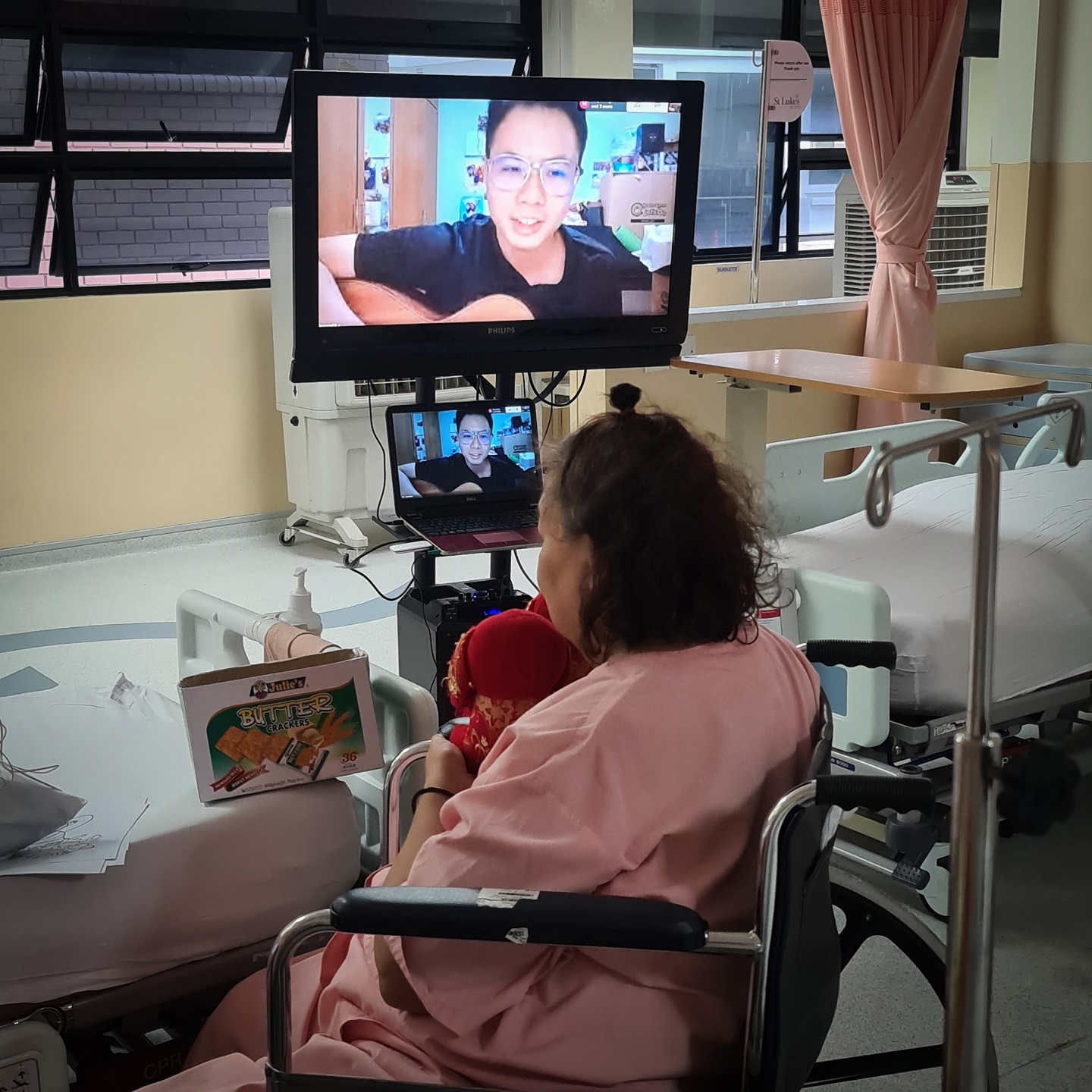Volunteers tap technology to keep reaching out to the needy
Sign up now: Get ST's newsletters delivered to your inbox
Even though he missed the camaraderie and socialising of his regular visits to the Muscular Dystrophy Association Singapore's (MDAS) centre in Bishan, Mr Timothy Chan was upbeat and in good spirits during a virtual meet-up with volunteers from Keppel Capital last month.
The asset management arm of Keppel Group had organised a series of sessions for its employees and MDAS clients using the Houseparty app, which allows up to eight people to play games and chat.
Volunteering amid the Covid-19 pandemic - and especially during the circuit breaker period from April 7 to June 1 - saw companies, organisations and social service agencies adapt and take many of their activities online, as well as create new programmes, to continue engaging with those in need.
Prior to the coronavirus pandemic, Keppel volunteers would visit the MDAS centre. Now, they meet the MDAS clients virtually.
Mr Chan, 29, said he enjoyed the games, such as drawing out a word for others to guess. "I wanted to play for longer," he added.
Ms Grace Chia, 40, Keppel's head of investor relations who is on the corporate social responsibility team and also a volunteer herself, said: "The circuit breaker and safe distancing measures should not stop us from doing good."
Another company that has moved its volunteer work online is insurer Prudential, which has been running engagement sessions with Thong Teck Home for Senior Citizens and the Alzheimer's Disease Association online since the middle of last month.
Social service agencies have also moved their existing programmes online, such as Touch Community Services' Touch Young Arrows (TYA) programme and Beyond Social Services' Learning is Fun and Exciting programme.
The weekly TYA sessions were usually held in small groups. Volunteers would impart values as well as give tuition to the children.
Last month, 300 volunteers and 300 children began using Zoom instead. For many volunteers, including Mr Thomas Tan, 33, who has been with TYA for 12 years, it was their first time moving online, but doing so was necessary.
"We are not just tuition teachers, but we are also mentors and, for some, a 'sibling'," said Mr Tan.
Other organisations have created new activities during this period.
St Luke's Hospital has started a daily breakfast show with music and interview segments, that is broadcast over its announcement system and hosted by life coach and volunteer Timothy Khoo, 55.

Homeless Hearts of Singapore, which has been allowed to continue some walkabouts to reach out to homeless people, has tried to minimise exposure by checking in on them via WhatsApp. But befriending the homeless is better done in person, said the group's co-founder, Mr Mervin Lee, 39.
While many organisations have been doing their best to adapt and continue serving those in need, it has not been an easy transition.
Touch Community Services said it lost half its volunteers for the Meals-on-Wheels programme after the disease outbreak alert level was raised to orange in February. It has since recruited enough people after an online drive and appeals to firms and individuals.
Beyond Social Services' volunteer manager, Ms Chiu Ying Yik, said the number of people allowed to volunteer in person was limited during the circuit breaker. Also, some activities, such as football, cannot be replicated online, she added.
But there is a silver lining. Being able to volunteer from home has made volunteering more accessible.
Mr Jeremy Hugon Kosman, 30, chairman of Volunteer Guitar Connection, who, with his team, provides song and cheer to patients at St Luke's through video calls, said he has more flexibility in joining the sessions as he does not have to travel to the hospital in Bukit Batok and back to his home in the east.
Technology has helped a lot in this transition.
For Homeless Hearts, the circuit breaker period coincided with the roll-out of its new Web app, which allows volunteers to fill different forms to help in various ways. As of the end of last month, more than 250 forms had been submitted, said the group's co-founder Abraham Yeo, 38. This makes it easier for the group to find the homeless and address their needs.
Lions Befrienders chairman Anthony Tay said volunteering methods have always been dynamic and the group has had to redesign some roles to keep up with the changes.
"While physical interactions remain a core component of our volunteering opportunities, the online mediums complement our existing volunteering methods and will be here to stay," he added.
Beyond's Ms Chiu said "digital volunteerism" is likely to be part of the new norm and Beyond is working on a training programme to equip volunteers with skills to make online learning interesting and interactive.
A National Volunteer and Philanthropy Centre spokesman said the current pandemic has made the existing cracks in society more obvious. The centre has released an online guide on how to help others during this time. "As the needs of the various communities in need come to light, those of us who are empowered with the abilities and resources have a 'response-ability' to uplift them," she said.


